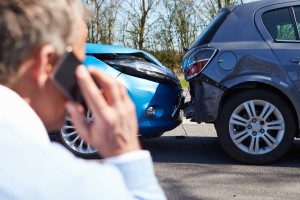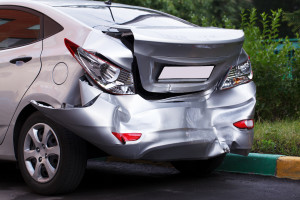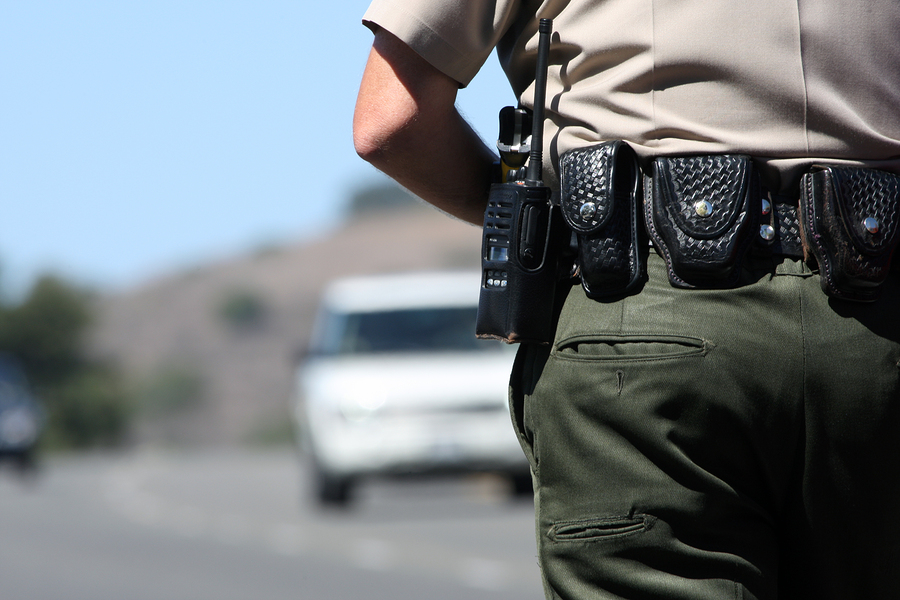Your car has just collided with another vehicle. You’re out on the back roads of a small Arizona town, miles away from civilization. The only people who witnessed the accident are you and the other driver. You exchange your information, take photos of the wreckage, and call a car accident lawyer – but what should you do about the police? You feel pain. Do they need to be notified about the accident, too? Do the police have to make a report? And how can plaintiffs benefit from filing (and obtaining a copy of) the police report?
Notifying the Police is Mandatory for Car Accidents with Injuries
As we’ve covered in a previous article, state law requires Arizona drivers to take three steps after appropriately stopping and remaining after a car accident.
The first step includes calling 911 or otherwise obtaining medical assistance for anyone who was injured in the crash. The second step is sharing your name, address, and vehicle registration number – otherwise you may be charged with a crime. The third step is showing the other driver your license upon request. (You can read about these laws in detail at A.R.S. § 28-661, A.R.S. § 28-662, and A.R.S. § 28-663, three statutes which address Arizona’s laws for drivers following auto accidents.)
But what about notifying the police?
If the accident resulted in injury to any party, including non-vehicle occupants like nearby pedestrians or cyclists, you are required by law to report the accident to law enforcement. Reporting injuries is absolutely mandatory, not a choice. In accordance with A.R.S. § 28-666, “The driver of a vehicle involved in an accident resulting in injury to or death of a person shall give notice of the accident immediately by the quickest means of communication, whether oral or written.” Needless to say, oral communication (i.e. a phone call) proves more efficient in most situations.

As the statute goes on to state, you may report the accident to any one of the following as appropriate:
- The local police department (where the accident occurs within a municipality).
- The county sheriff’s office.
- “The nearest office of the highway patrol.”
If you don’t know any of these numbers, call 911 and describe the nature of the injury and accident. The operator will take care of getting you the assistance you need.
While you wait for the police to arrive, gauge whether you need to move your car. Ideally, the car should be left in place so that police can investigate the accident scene as-is. There are times when your vehicle must be moved from the main portion of a highway as long as it is safe to do so. Do not attempt to move your vehicle if doing so will potentially result in injury to any other drivers or pedestrians in the area.
Remember, safety is always a priority. Do not worry about temporarily slowing down traffic if moving your car will cause an accident, injury, or wrongful death to occur.
Under A.R.S. § 28-667(A), a police officer investigating a car accident resulting in bodily injury or death must complete a written report.
Why Should You Call Police for Property Damage?
Calling police is strongly encouraged for the following two reasons:
- If you do not call police, the other driver may be more likely to deny your account of the accident – particularly if there were no other witnesses present at the time of the accident.
- Without police records detailing the exact nature and location of the property damage, you have less evidence to support your claim. That means you could ultimately be deprived of compensation which you might otherwise have been able to recover. Police reports note critical details like points of impact, length and location of skid marks, and size and location of dents and scratches, all of which help investigators determine how the accident occurred (and in turn, who was primarily at fault).

Under A.R.S. § 28-667(A), a police officer investigating a car accident must complete a written report if it results in property damage in excess of $ 1,000.00. Even if the harm is just $ 1,000.00 or less for property damage, investigating police must still complete a portion of the report including where and when the accident occurred, those involved, witnesses, proof of insurance, vehicle identification, a narrative and a diagram per A.R.S. § 28-667(B). A police report can be an invaluable wellspring of evidence in your favor.
If you were injured in a car accident in Arizona, or if your vehicle was damaged by another driver, personal injury lawyer Jerrold Mayro may be able to help you recover compensation. Jerrold has more than three decades of experience handling auto accident claims on behalf of property damage and injury victims, and has achieved favorable outcomes for numerous clients in the state of Arizona.
To set up a free, completely private legal consultation with Jerrold, call The Mayro Law Firm at (602) 604-8400 today.

